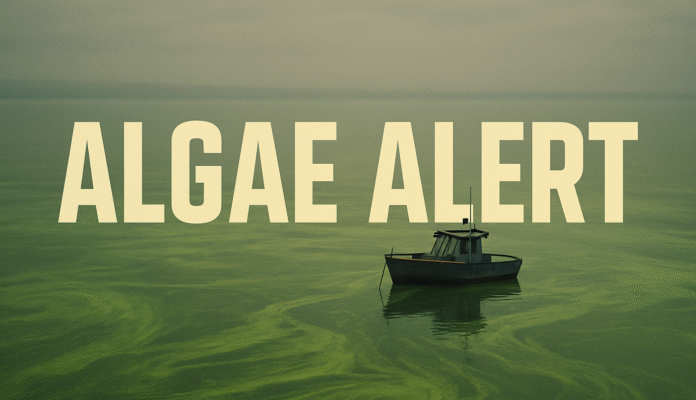Cleveland, OH – A federal agency has identified harmful algal toxins in Lake Erie earlier than expected this year, raising concerns for public health and regional water systems.
According to the National Oceanic and Atmospheric Administration (NOAA), water tests conducted April 28 revealed microcystin, a toxin produced by blue-green algae, in western Lake Erie. The toxin was found at levels of 0.12 parts per billion, not yet high enough to trigger treatment or recreational warnings, but still notable for its early seasonal appearance.
NOAA’s Great Lakes Environmental Research Laboratory (GLERL) in Ann Arbor, Michigan, confirmed this is the earliest detection of microcystin since monitoring began. Reagan Errera, a research ecologist at GLERL, stated the toxin typically appears about 10 days later in the season. The early presence allows for quicker mitigation by drinking water systems and environmental managers.
“Over the last seven years we have seen the toxic period of the harmful algal bloom start 10 days earlier than occurred in the period before this,” Errera said. “Early detection gives the public more time to make informed decisions regarding health risks.”
Sampling will continue weekly through October, focusing on eight sites in Lake Erie and five in Saginaw Bay. Testing is done by boat and includes cyanobacteria toxin levels as part of broader water quality monitoring.
NOAA emphasized that microcystins, while currently below advisory levels for drinking water (1.6 ppb) and recreation (8 ppb), could increase with summer heat. Harmful algal blooms have been linked to fish kills and risks to humans and pets.
Harmful algal blooms have become a seasonal issue across the Great Lakes. NOAA’s early alert system aims to prevent exposure and ensure safe water access during peak recreation months.
This article was produced by a journalist and may include AI-assisted input. All content is reviewed for accuracy and fairness.
Follow us on Instagram & Facebook for more relevant new stories and SUPPORT LOCAL INDEPENDENT NEWS! Have a tip? Message us!




